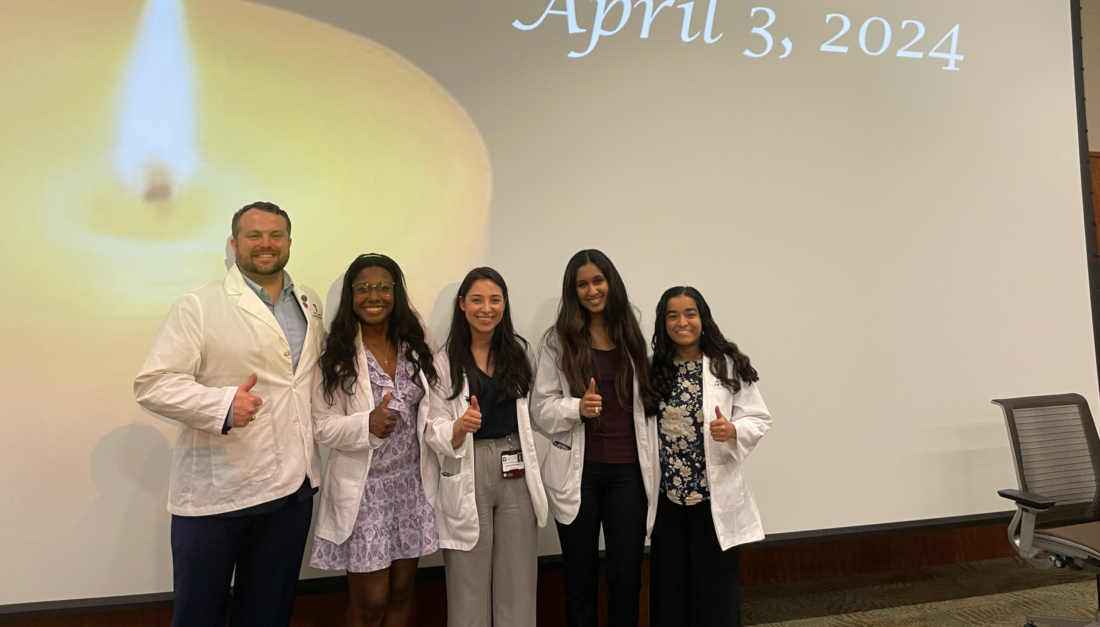- Christina Sumners
- Medicine, Quarterly Theme, Show on VR homepage
Giving hope and inspiration through medicine
First-year medical student Sarah Elmer was inspired to go into medicine by the neonatologist who cared for her baby brother

Q: Why did you choose to become a physician?
A: I was inspired to pursue a career in medicine because of my youngest brother, Marshall. Marshall has trisomy 18, a severe genetic disorder that causes death in 90 to 95 percent of children before their first year of life. I was only 11 when Marshall was born, and I had a very difficult time comprehending and accepting the severity of his prenatal diagnosis. However, I had a meaningful interaction with the neonatologist who took care of Marshall in the intensive care unit when he was an infant. His physician demonstrated the power of the human connection by comforting me and encouraging me to have faith. The hope he ignited in me sparked a flame that motivated me to change lives by giving people hope and inspiration through medicine. This flame has only burned brighter through the years with my various experiences inside and outside of health care.
Q: How are you planning on advocating for women’s health issues?
A: I plan on advocating for women’s health issues by raising awareness about how implicit bias specifically affects female patients. For example, there have been numerous instances of health care workers minimizing pain complaints from female patients. Women who present with pain are viewed by some providers as being anxious or hysterical, rather than being viewed as someone experiencing a heart attack or some other life-threatening emergency. The first step in addressing a problem is recognizing that one exists. If health care employees do not know about their own implicit biases, then they cannot work to actively combat them.
Q: Are there any women in medicine, past or present, who inspired or influenced you to pursue a career in the field?
A: My mom is a pediatrician by training, and my older sister, Katie, is an acute care physical therapist. Growing up with two strong female role models in the health care field definitely furthered my interest in pursuing a career in medicine.
Q: Based on your own experiences, what advice would you give girls who want to pursue a career in medicine?
A: There is a place for you in medicine. The diversity in your life experiences as a woman will give you a unique insight that will make you a better doctor to your patients, both female and male. This path is not easy, but it will be worth it in the end.
Q: Why Texas A&M?
A: The thing that sets the Texas A&M College of Medicine apart from other medical schools is its incredible people. Though I have only been a medical student for a couple of months, I am constantly astounded by the genuine compassion of the faculty and staff and their desire to help students succeed. Early this semester, impostor syndrome hit me hard and made me question my ability to succeed as a medical student. However, the academic support staff, my professors, my classmates and upperclassmen have been incredibly supportive and very reassuring. They believe in me, even when I have trouble believing in myself. I cannot imagine being a medical student at any place other than Texas A&M.
Q: What is your personal motto?
A: “Perfer et obdura, dolor hic tibi proderit olim,” a quote by Ovid that roughly translates to “Be patient and tough; someday this pain will be useful to you.” I like to view the hardships and struggles in my life as experiences that will make me a more understanding and compassionate physician in the future.
Media contact: media@tamu.edu


